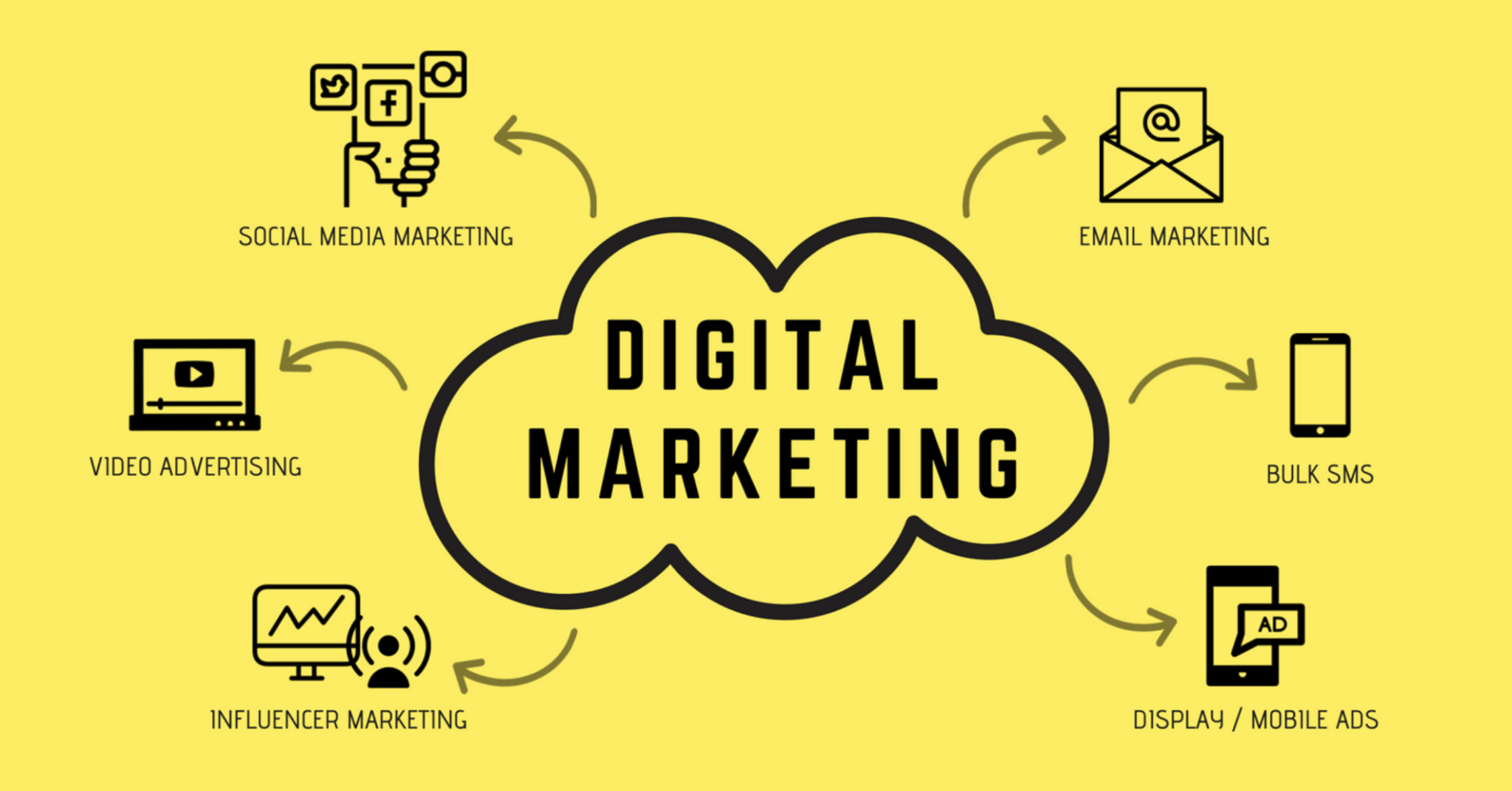Understanding the nitty-gritty of marketing in a digitalized world can be confusing. With diverse terms such as digital marketing, content marketing, content strategy and product marketing, it’s easy to get lost.
This blog post simplifies these concepts for you, outlining each term individually before showing how they work together effectively. Get ready to gain clarity and enhance your business’s online presence with the right marketing choice!
Key Takeaways
- Digital marketing utilizes online platforms to promote products and services, reaching customers where they spend most of their time.
- Content marketing focuses on creating valuable and relevant content to attract and engage a target audience, building trust and brand loyalty.
- Content strategy involves planning, organizing, and managing content to achieve specific business goals, ensuring that messaging reaches the right people at the right time.
- Product marketing is crucial for promoting a specific product or service, highlighting its unique features and benefits to generate interest and drive sales.
Understanding the Differences
Digital marketing encompasses various online strategies and channels to promote products or services, while content marketing focuses on creating and distributing valuable and relevant content to attract and engage a target audience.
Content strategy, on the other hand, involves planning, organizing, and managing content to achieve specific business goals. Lastly, product marketing involves promoting a specific product or service through targeted advertising and messaging.
What is Digital Marketing?
Digital marketing utilizes online platforms to promote products or services. It covers a wide range of activities including social media promotion, search engine optimization (SEO), and email campaigns.

The aim is to reach customers where they spend most of their time: online. Businesses use digital marketing to increase brand awareness, engage with potential consumers, and ultimately drive sales.
With the ability to target specific demographics and track metrics in real-time, digital marketing offers businesses unprecedented levels of control over their advertising initiatives.
Benefits of Digital Marketing
Digital marketing offers numerous benefits for businesses looking to expand their online presence and reach a wider audience. One of the key advantages is the ability to target specific demographics and reach potential customers all over the world.
With digital marketing, businesses can tailor their messages to appeal directly to their target market, increasing the chances of generating leads and converting them into sales. Additionally, digital marketing allows for real-time tracking and analysis of campaigns, providing valuable insights that can be used to optimize future strategies.
This data-driven approach helps businesses make informed decisions about where to invest their resources and how to improve customer engagement. From increased brand awareness and improved search engine rankings to cost-effective advertising options, digital marketing opens up a world of opportunities for businesses seeking growth in today’s highly competitive landscape.
Types of Digital Marketing
Digital marketing encompasses various types of online strategies and tactics to reach and engage target audiences. Some common types include social media marketing, search engine optimization (SEO), email marketing, content creation, and digital advertising.
Social media marketing involves promoting products or services on platforms like Facebook, Twitter, and Instagram to increase brand awareness and customer engagement. SEO focuses on optimizing website content to improve its visibility in search engine results pages.
Email marketing is a direct communication channel that allows businesses to send targeted messages to their audience. Content creation involves creating engaging articles, videos, or infographics to attract and educate potential customers.
What is Content Marketing?
Content marketing is a strategic approach to marketing that focuses on creating valuable and relevant content to attract and engage a target audience. Instead of directly promoting products or services, content marketers aim to provide information, entertainment, or education through various channels such as blogs, social media posts, videos, and podcasts.
The goal is not only to increase brand awareness but also to build trust with consumers by delivering useful content that meets their needs. By consistently producing high-quality content, businesses can establish themselves as thought leaders in their industry and ultimately drive customer loyalty and sales.
Benefits of Content Marketing
Content marketing offers numerous benefits for businesses. First and foremost, it helps increase brand awareness by creating high-quality content that is valuable and relevant to the target audience.
By consistently delivering useful information, businesses can establish themselves as industry experts, gaining the trust of their customers in the process. Furthermore, content marketing aids in generating leads and driving conversions.
Engaging and informative content attracts potential customers, encourages them to take action, and ultimately increases sales. Additionally, content marketing improves search engine optimization (SEO) efforts by providing fresh and engaging material for search engines to crawl and index.
This results in higher organic rankings on search engine result pages (SERPs), leading to increased visibility online. Lastly, content marketing facilitates customer engagement by fostering a meaningful connection between businesses and their audience through interactive formats such as blog comments or social media discussions.
Types of Content Marketing
Content marketing encompasses various types of content that are strategically created and distributed to engage and attract a target audience. These types include blog posts, articles, videos, infographics, podcasts, social media posts, whitepapers, case studies, eBooks, webinars, and more.
Each type serves a specific purpose in delivering valuable information and building brand awareness. By leveraging different formats and platforms, businesses can effectively reach their customers while showcasing their expertise and offering solutions to their problems.
This variety allows for flexibility in appealing to different preferences and staying ahead in the competitive digital landscape.
In addition to these types of content marketing examples mentioned above business can also employ other creative approaches such as user-generated content (UGC), influencer collaborations or guest blogging to amplify reach even further while fostering trust with the audience.
What is Content Strategy?
Content strategy is an essential component of any successful marketing plan. It involves the deliberate planning, creation, and distribution of valuable content to attract and engage your target audience.
A well-executed content strategy helps build brand awareness, establishes credibility, and drives customer engagement. By understanding your customers’ needs and preferences, you can create relevant and compelling content that aligns with your business goals.
Whether it’s blog posts, social media updates, or videos, a strong content strategy ensures that your messaging reaches the right people at the right time in order to generate leads and drive conversions.
Importance of Content Strategy
A strong content strategy is essential for successful marketing campaigns. It helps businesses create and deliver valuable, relevant, and consistent content to attract and engage their target audience.
By developing a well-defined content strategy, businesses can enhance their brand awareness, increase customer engagement, generate more leads, and ultimately drive revenue growth.
A content strategy also allows businesses to optimize their SEO efforts by focusing on creating high-quality content that aligns with search engine algorithms. Additionally, it enables businesses to effectively utilize various channels such as social media marketing and email marketing to distribute their content and reach a wider audience.
Components of a Content Strategy
A content strategy is composed of several key components that work together to ensure the effectiveness and success of your marketing efforts. These components include defining your target audience, conducting thorough research, creating high-quality content, developing a distribution plan, and establishing clear goals and metrics for measuring success.
By carefully considering each of these components and incorporating them into your overall strategy, you can create impactful and engaging content that resonates with your audience and helps you achieve your marketing objectives.
What is Product Marketing?
Product marketing is a crucial aspect of any business strategy. It involves the promotion and positioning of a specific product or service in the market to attract customers and generate revenue.
Product marketers conduct research to understand consumer needs, identify target audiences, and develop effective marketing strategies. They create compelling messaging and content that highlights the unique features and benefits of their products.
Through various channels such as advertising, social media, email marketing, and more, product marketers aim to increase brand awareness, drive customer engagement, and ultimately drive sales conversions.
Benefits of Product Marketing
Product marketing plays a crucial role in promoting and selling a specific product or service. By focusing on the unique features, benefits, and value propositions of a product, it helps businesses generate interest and demand from their target audience.
One of the main benefits of product marketing is that it helps increase brand awareness by showcasing the value and differentiation of the product compared to competitors. It also contributes to revenue generation by driving sales through effective messaging, positioning, and pricing strategies.
Moreover, product marketing enables businesses to understand customer needs better, resulting in improved customer satisfaction and loyalty. Through targeted marketing tactics such as advertising campaigns, email marketing, and social media promotions, product marketing helps businesses effectively reach their target audience while maximizing conversion rates.
Channels for Product Marketing
Product marketing relies on various channels to promote and sell a product. One effective channel is social media platforms like Facebook, Instagram, and Twitter. With billions of users worldwide, businesses can reach their target audience easily through engaging posts, sponsored ads, and influencer collaborations.
Another important channel for product marketing is email marketing. Sending personalized emails to potential customers helps build relationships and increases the chances of conversion.
Additionally, partnering with influencers or bloggers who have a strong online presence can also be an effective way to market products. These individuals can create content featuring the product and share it with their followers, generating more visibility and credibility for the brand.
How They Work Together
Content marketing plays a crucial role in digital marketing by providing valuable and engaging content to attract and engage the target audience.
The Role of Content Marketing in Digital Marketing
Content marketing plays a crucial role in digital marketing by providing relevant and valuable content to attract and engage the target audience. It focuses on creating and sharing informative, educational, or entertaining content that aligns with the needs and interests of potential customers.
Content can take various forms such as blog posts, videos, infographics, podcasts, or social media updates. By consistently producing high-quality content, businesses can build brand awareness, establish credibility within their industry, and drive traffic to their website.
Additionally, content marketing helps improve search engine optimization (SEO) efforts by incorporating relevant keywords into the content to increase organic visibility on search engines.
Using Content Strategy to Enhance Digital Marketing
A strong content strategy is essential for enhancing digital marketing efforts. By developing a well-defined plan for creating and distributing relevant, valuable, and engaging content, businesses can effectively reach their target audience and achieve their marketing goals.
A strategic approach to content creation ensures that the content aligns with the overall business objectives and appeals to the needs and interests of the target market. This not only helps improve brand awareness and customer engagement but also enhances search engine optimization (SEO) efforts, increases website traffic, generates more leads, and ultimately drives conversions.
Incorporating a robust content strategy into digital marketing campaigns enables businesses to stand out in a crowded online landscape and build lasting relationships with their customers.
Integrating Product Marketing into Digital Marketing
Integrating product marketing into digital marketing is crucial for businesses looking to maximize their online presence and drive sales. By aligning product messaging with digital marketing strategies, companies can effectively reach their target audience through multiple channels.
This integration involves leveraging digital platforms such as social media, email marketing, and search engine optimization to promote products and generate leads. By incorporating product-focused content into online campaigns, businesses can increase brand awareness, engage customers, and ultimately boost revenue generation.
Choosing the Right Approach
Consider various factors such as business goals, available resources, and budget to make an informed decision on which marketing approach will best suit your needs. The right strategy can significantly impact the success of your marketing efforts.
Read on to learn more!
Factors to Consider
To choose the right marketing approach for your business, there are several factors to consider. First, think about your target audience and their preferences. Understanding who you’re trying to reach will help you tailor your strategy accordingly.
Next, assess your resources and budget. Determine how much time, money, and manpower you can allocate to marketing efforts. Additionally, consider the goals of your business. Are you looking to increase brand awareness or generate more leads? Finally, keep an eye on industry trends and competition.
Staying informed about what’s happening in the market will help you make strategic decisions that set you apart from others.
When deciding on a marketing approach, it is important to take into account factors such as target audience preferences, available resources and budget allocation, business goals, industry trends, and competition in order to make strategic decisions that align with your company’s objectives.
Aligning with Business Goals
Aligning your marketing efforts with your business goals is crucial for maximizing success. Whether you’re focusing on digital marketing, content marketing, content strategy, or product marketing, it’s important to ensure that each approach supports and aligns with your overall business objectives.
By clearly defining and understanding what you want to achieve as a company, you can make informed decisions about which strategies will be most effective in reaching those goals. This alignment allows you to optimize your resources and budget while delivering targeted messages to the right audience at the right time.
Ultimately, by aligning your marketing strategies with your business goals, you increase the likelihood of generating revenue, increasing brand awareness, and achieving long-term success.
Assessing Resources and Budget
Assessing resources and budget is a crucial step in choosing the right marketing approach. It involves evaluating your company’s available resources, such as staff, equipment, and technology, to determine what can be allocated to marketing efforts.
Additionally, you need to carefully consider your budget limitations and allocate funds strategically across various marketing activities. By assessing resources and budget effectively, you can make informed decisions about the most effective marketing tactics for your business without overspending or spreading yourself too thin.
Conclusion
In conclusion, understanding the differences between digital marketing, content marketing, content strategy, and product marketing is crucial for developing a successful marketing strategy.
Each approach has its benefits and plays a unique role in reaching and engaging with target audiences. By choosing the right approach based on business goals and available resources, companies can drive brand awareness, generate leads, and increase revenue through effective online marketing tactics.
FAQs
1. How does digital marketing differ from content marketing?
Digital marketing focuses on lead generation and online marketing via different channels, while content marketing forms part of inbound marketing strategy primarily targeting to generate brand loyalty by offering value through meaningful information.
2. What is a content strategy?
A content strategy plans the way for valuable media creation in harmonization with branding strategy to attract target audience using tools like social media strategies, blogs etc as a key aspect in digital or online Marketing.
3. Is product marketing similar to digital and content marketing?
Product Marketing relates more closely with understanding customer needs and promoting products accordingly; although it can utilize tools of Digital and Content Marketing for promotion across various platforms.
4. Can all these different types of marketings be used together?
Absolutely! In fact, digital, content, productmarketing often work best when aligned together under a well-defined brand’s inbound & social media strategies which optimizes their respective strengths towards achieving higher leads & better conversion rates.



